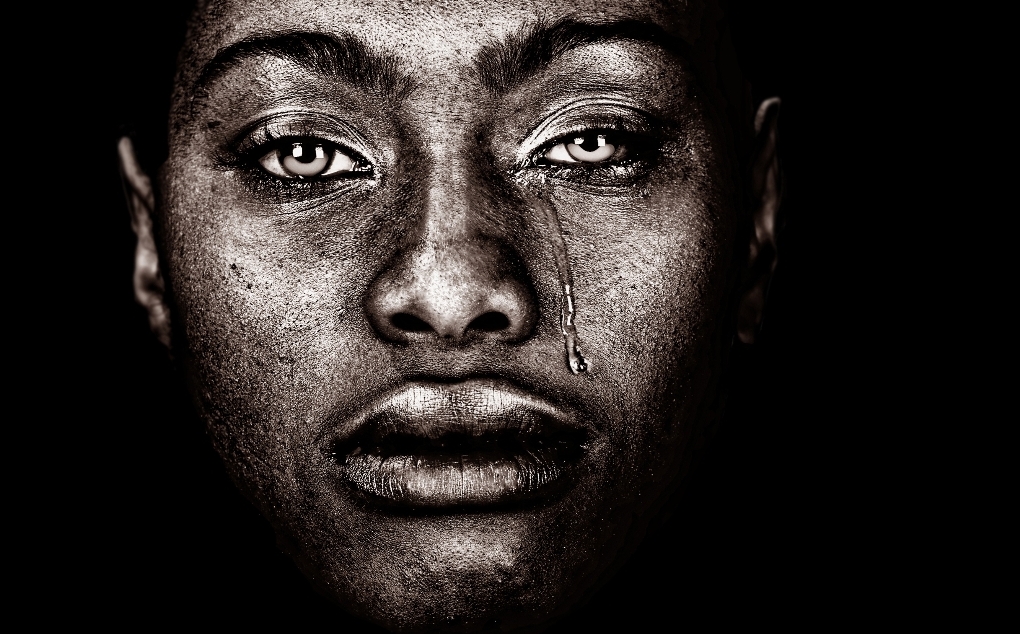Who taught you to hate Black women? Really, it’s a valid question on any day. But coming fresh off a three-day trauma-f**k that was watching Lifetime’s Surviving R. Kelly followed by reading sexual assault and rape apologist commentary, it’s an especially urgent question.
The commitment and time people put into vilifying Black women and girls for their own sexual abuse is as repulsive as it is stupid, and the conversation brings out the worst in otherwise decent people. Many hold fast to age old attitudes about the sexual assault of Black women, supporting their beliefs with myths and tropes. Others relegate their experience, because of how customary, participatory and deeply embedded these practices have become within our culture.
Doubting the accuracy of something does not make it untrue; ask Kyrie Irving. He thought the world was flat. Likewise, minimizing destructive behavior because it appears normative does not make it OK — ever. Statutory rape is still rape. Surviving R. Kelly and the discourse surrounding the docuseries proves it takes a whole-a** village to rape and sexually abuse Black women and girls, ultimately f**king up their lives. Abusers, predators, rapists and those who are complicit in abetting all of the above operate in an ecosystem that works in their favor.
There are so many levels to this s**t; it’s no wonder basic, elementary thinkers totally miss the point. The nuances that impact Black women and girls are so complex, The SASHA Center, a Detroit nonprofit that serves the African American community, created The Sasha Center Model: Black Women's Triangulation of Rape.
Here is the model of understanding why rape in the black community happens in plain sight and no one does anything about it. pic.twitter.com/aviKZa2u84
— SASHA Center (@SashaCenter1) January 4, 2019
Networks that work against Black women exist, and the SASHA Center's diagram breaks them down clearly so flat they shall forever remain broken, using a pyramid that illustrates the elements and conditions which impact Black, female rape victims. The pyramid is enclosed within a sphere designed to demonstrate the vicious matrix of eight factors that these victims are up against, with four systems and four circumstances.
The four systems are defined as:
- Slavery and institution
- Racism and bigotry
- Policies and funding
- Social Barriers
The four circumstances involve:
- Demoralization and exploitation
- Systemic barriers
- Rape culture
- Victim blaming
Within the sphere exists an environment that consists of another set of challenges that make it that much harder for Black victims of rape and sexual assault to heal.
Kalimah Johnson, founder and executive director of the SASHA Center, said the model was necessary. “I’ve been doing this work for 27 years,” Johnson told Blavity. “What I’ve learned is that service providers [and services] were not flowing to survivors. They were not telling survivor stories how they wanted them told, they weren’t hearing survivors the way they wanted to be heard and they weren’t organizing in a way survivors needed.”
Johnson, who is also a social worker and rape survivor, developed the model after years of research, using the Minnesota Duluth Model as the framework for its development.
“I handwrote the model,” Johnson shared. "I wrote out all the topical things, and then listed the challenges Black women have that interfere with their healing.”
However, Johnson didn’t go at it alone; she also had the help of the community at large. As a salon owner in the downtown Detroit area, she called on her clients to help add to the growing list of challenges. Additionally, she enlisted members from the LGBTQ+ community, sex workers and other survivors to contribute to the growing list, as well. Johnson then opened the list up to social media users, receiving suggestions via email. After working on the project for about two years, she publicly debuted the final product of her research and findings in August 2018.
Facebook Live | SASHA Center
"This diagram is for people to see [the challenges Black women are up against] and utilize for their healing, to change their mindset into one that empowers them,” Johnson said. “It’s for people to not be triggered and pass judgement against Black women, who are survivors — especially in the Black community. We have a lot of growing to do."
One thing is for certain — and few things are for sure — numbers don’t lie. Rape affects Black women and girls at exponentially higher rates than women and girls of other races or ethnic backgrounds. According to the Fourth National Incidence Study of Child Abuse and Neglect, African-American children are almost twice as likely to experience child sexual abuse, and are more likely to report incidents of perpetrators living in the same household. The Institute for Women's Policy Research also found that "more than 20 percent of Black women are raped during their lifetimes — a higher share than among women overall.”
The SASHA Center is one of few organizations whose work centers African American women, offering “sex assault services for holistic healing and awareness.” The center operates fully without funding. It behooves to contribute resources and monetary donations because it’s obvious we all we got. Connect with SASHA center here.
As for the numerous harrowing firsthand accounts courtesy of brave survivors of sexual assault, and the stats and studies that only further back their claims and underscore this systemic plague, there's is one thing I’m compelled to state: F**k your cognitive dissonance.
Liking this content? Check these out:
10 Moments That Showed The Black Woman Is Still The Most Unprotected Neglected And Disrespected
The Women Caping For R. Kelly, Cosby And Kavanaugh Are Appalling Iterations Of Ride Or Die Chicks
